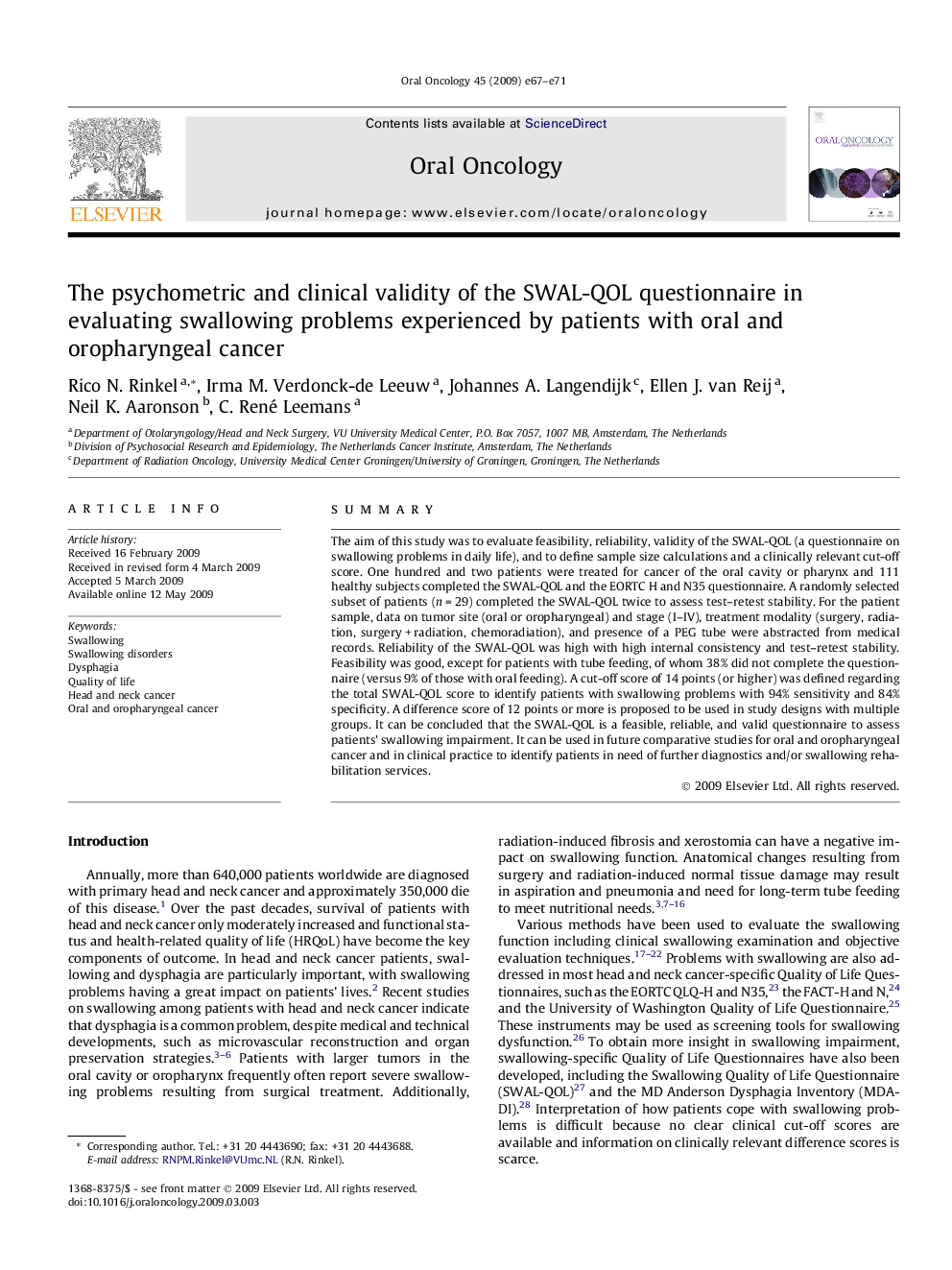| Article ID | Journal | Published Year | Pages | File Type |
|---|---|---|---|---|
| 3165363 | Oral Oncology | 2009 | 5 Pages |
SummaryThe aim of this study was to evaluate feasibility, reliability, validity of the SWAL-QOL (a questionnaire on swallowing problems in daily life), and to define sample size calculations and a clinically relevant cut-off score. One hundred and two patients were treated for cancer of the oral cavity or pharynx and 111 healthy subjects completed the SWAL-QOL and the EORTC H and N35 questionnaire. A randomly selected subset of patients (n = 29) completed the SWAL-QOL twice to assess test–retest stability. For the patient sample, data on tumor site (oral or oropharyngeal) and stage (I–IV), treatment modality (surgery, radiation, surgery + radiation, chemoradiation), and presence of a PEG tube were abstracted from medical records. Reliability of the SWAL-QOL was high with high internal consistency and test–retest stability. Feasibility was good, except for patients with tube feeding, of whom 38% did not complete the questionnaire (versus 9% of those with oral feeding). A cut-off score of 14 points (or higher) was defined regarding the total SWAL-QOL score to identify patients with swallowing problems with 94% sensitivity and 84% specificity. A difference score of 12 points or more is proposed to be used in study designs with multiple groups. It can be concluded that the SWAL-QOL is a feasible, reliable, and valid questionnaire to assess patients’ swallowing impairment. It can be used in future comparative studies for oral and oropharyngeal cancer and in clinical practice to identify patients in need of further diagnostics and/or swallowing rehabilitation services.
